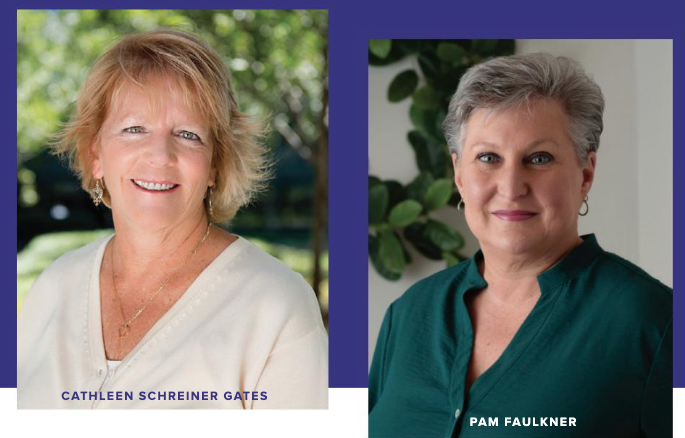
Deb Jones
As I look back at my 35+ year career in the mortgage industry, I remain so thankful for how my journey unfolded. When I first began, there were not a lot of women working in this field or in analytics, finance, strategy, or other leadership roles. Even as few as 10 years ago, it was rare to see women holding seats at leadership tables. We truly have made huge progress, and women now lead teams serving critical roles in every aspect of the industry, including capital markets. I’ve had the pleasure of working alongside many smart and talented women who have gone on to assume leadership roles at various banks and companies throughout the industry.
One great example is Renee Schultz, who worked her way up from being a trader to running all of capital markets for Fannie Mae. Young women must find those genuine mentors to take bold steps early in their careers and broaden their experiences. Learn as much as possible about the mortgage business by taking different roles early, and don’t be afraid of a little hard work. After all, you may impress someone now who can help you land that dream job years down the road!
My journey in secondary marketing was born out of my college major of Economics and Business, where a required internship lead me the head of Investors Home Mortgage in Richmond, Virginia, via a college alumna reference (networking!). He was supportive from the very beginning and made me promise I would come back in the summer after the internship was finished to process loans and truly get my career started. It went so well for both of us, that upon graduation, they made me their first manager trainee in a new talent development program. Both the internship and management program gave me insight into all areas of the mortgage banking life cycle, and I am thankful for the time I spent learning those aspects of the business.
After I completed the year-long training program, they asked me to work on implementing its first ever loan origination system (remember, this was the mid ‘80s). I did programming, training, design, and delivery. I even helped hardwire the computers! That whole experience taught me so much, from training the users to writing rules submitted by the secondary team for products and pricing. Next, I moved into a junior trader role in secondary marketing and over the next few years gained experience in pricing, hedging, and developing automated tools for the daily position and mark to market. I also worked on CMOs and helped form our first ARM securitizations. We had a great culture with collaborative leadership that embraced people with positive energy and willingness to take on challenges; finding that right culture is important.
While I was happy in this role, after six years, I decided to move from Richmond to Atlanta with no job as I needed to make a change. I loved where I had been, but I didn’t want to get too comfortable, so I decided to make that bold move. Instead of joining a traditional mortgage company, I went to work as an asset marketing specialist for the Resolution Trust Corporation during the S&L crisis. I was able to leverage my secondary skills to manage loan sales as they dispositioned failing banks. This was never intended to be a long-term career path as the role had a lifespan of only five years. I was fortunate to learn from a small but diverse group of mortgage experts in the pilot program to dispose of $10 billion in assets in two years. We had to create a new program for the FDIC, leveraging traditional secondary transaction management instead of the FDIC bureaucratic case management in order to improve execution to the government and tax payers. The team consisted of former Freddie Mac leaders, Wall Street traders, and mortgage origination capital markets professionals. We all brought different skills to the table and enjoyed great success as we pulled together as displaced industry capital market subject matter experts. I’m pleased to say I formed life-long friendships with several of my colleagues in that role.
After the pilot was complete, I ended up going with a few of my RTC peers to Greenwich Capital as a Deal Manager in the Dallas office. I was ready to try my hand directly working inside a Wall Street firm as I gained experience in capital markets. This was a natural move as I was confident that I had enough experience through buying, curing, and reselling bulk packages at the RTC. Only now I wasn’t working for the government, but rather with the investors we had been selling to, so I had to prove to myself I could succeed in a Wall Street “establishment.”
In less than two years, I decided to take another bold risk as I was offered an opportunity to partner in a start-up mortgage consulting firm focusing on transaction management. As the RTC transactions waned, we had to reinvent ourselves, so we offered transaction support to small banks with no real capital markets infrastructure in strategic asset sales. We were in a mini refi boom at the time, so we created a talent pool of entry-level candidates for data entry and junior processing positions, and simultaneously provided contract underwriting and quality control to both large and small banks.
This was the experience of my career, as we dove into entrepreneur mode and used the varied knowledge we all had gained in our past lives to reinvent ourselves based on market needs. At times, we experienced both feast and famine, including once only meeting payroll for our employees by using my credit card as a holdover until our clients paid. That experience was immeasurable and while I made less money in those four years than I would have in two as a deal manager, there simply is no price that can be put on what I learned. I tested my boundaries, felt scared without showing it, was resourceful, and delivered what the client needed. What a ride! I learned that former relationships can’t guarantee future success. The importance of constantly forming new relationships and earning their trust is a lesson that I will always keep with me.
I only ended up back in mainstream mortgage banking on the back of a secondary marketing consulting job with the company I had originally started with, though they had since been acquired. I had missed the day-to-day mortgage banking energy and had a specific interest in capital markets. When the consulting job concluded, the head of capital markets at the time, asked me to come on board and install QRM hedging systems while he developed me as his successor. We focused on areas where I had gaps in knowledge, like product development and investor relations. As planned, I assumed that leadership role once he moved on.
Through the next acquisition, I continued my role in leading capital markets for Charter One and eventually took on additional responsibilities as chief administration officer, managing not only secondary, but operations, JVs, captive reinsurance, and even sales in an interim position during a leadership gap. I had a great capital markets team that allowed me to broaden my leadership scope. When Citizens acquired Charter One, I resumed a singular focus in managing capital markets where I am today. I learned a lot overseeing the various roles but was excited to be able to focus primarily on capital markets again. Throughout my career at Citizens, I have been leveraged for strategic input and special initiatives as well. It’s a great place to work with talented leaders and a collaborative culture, particularly in these last few years as we have grown our mortgage division.
I wouldn’t trade the lessons I’ve learned throughout my career for anything. The struggles have been an important part of the journey, and I know that I’m stronger for having gone through them. So, why is it hard for women to get into these types of roles? To be honest, I’m not sure it is if you find the right culture and support. Be adaptive and learn to work in a diverse, challenging, and competitive environment.
You will succeed if the company culture legitimately embraces top talent, irrespective of gender or other diversities. Understand that in conflict you may be right, but how you deliver the message will make all the difference in how you are perceived. Women’s feedback can be taken very differently, so seek coaching on how to present yourself so you are taken seriously. Look at the broader picture, stay focused on delivering results, and as my mother always said, “cream always rises to the top.” Working with both female and male mentors will give you the broadest perspective. Early on, take bold and diverse steps without “job-hopping.” Make your moves strategic and meaningful. Invest in breadth and depth of skills and knowledge, but also find a specialty to set yourself apart from others. Whether you are climbing up the ladder from inside capital markets or from finance or analytical roles, understanding mortgage banking will be a critical investment in yourself.
Finally, be authentic. Build trusting relationships through accountability, collaboration, and hard work. Delivering results and sharing successes with teammates, no matter how large or small, will establish your reputation. Build both tactical and strategic capabilities along the way, as you’re sure to use both. Engage in the industry trades and give back by participating in trade association working groups. You will learn to understand issues from various perspectives, and you will build lasting friendships. Plus, you’ll always have someone to help you work through your challenges.
Most importantly of all, never forget from where you came. Become someone else’s mentor… pay it forward!



